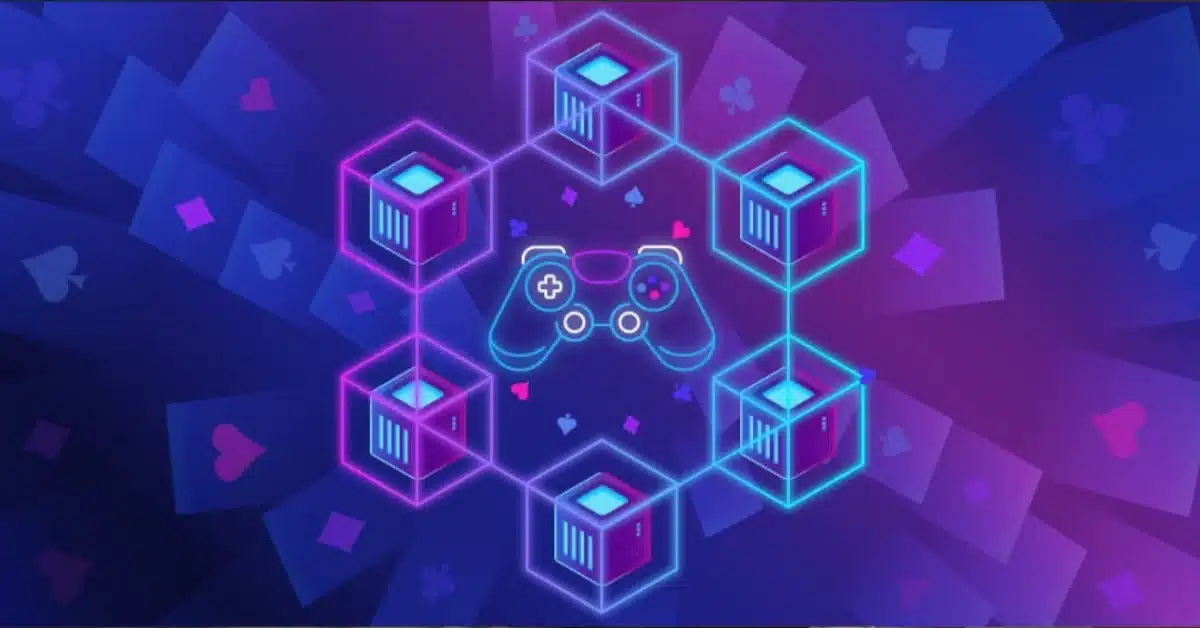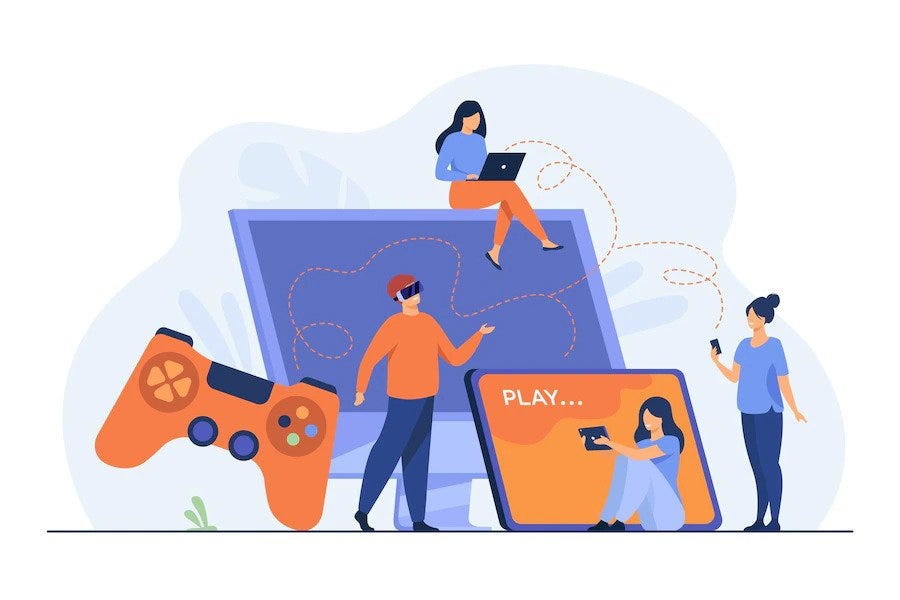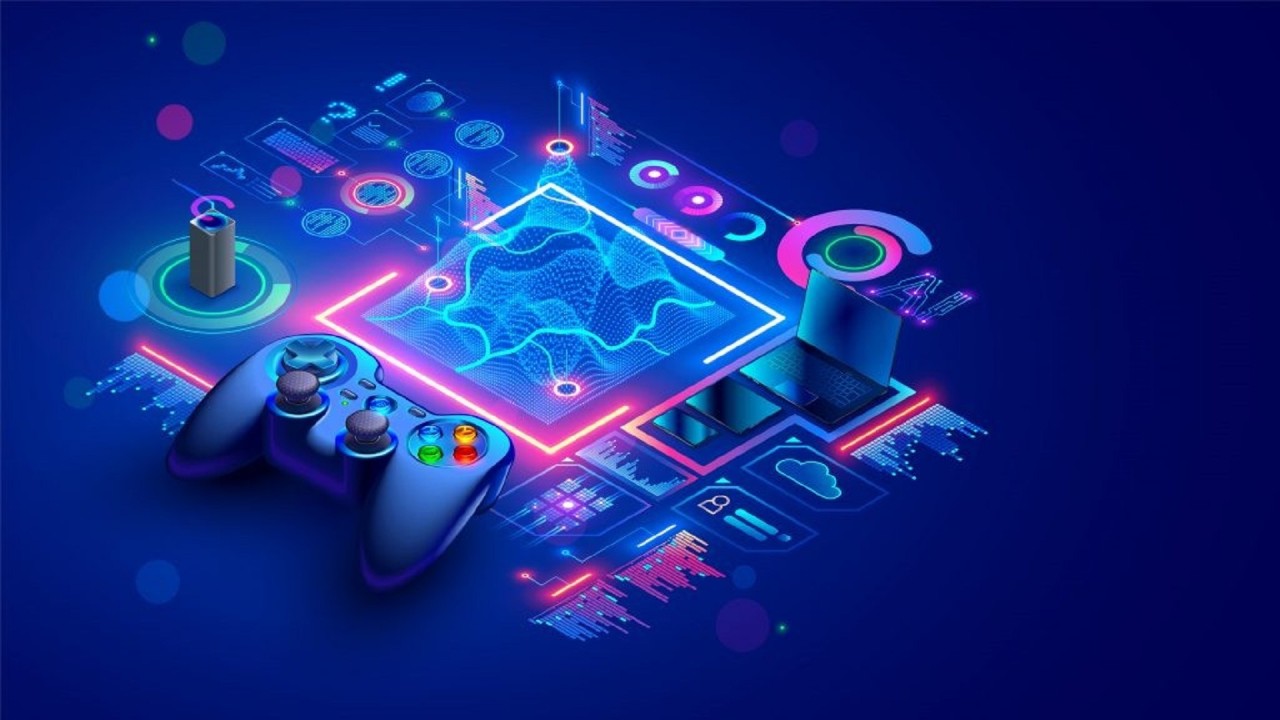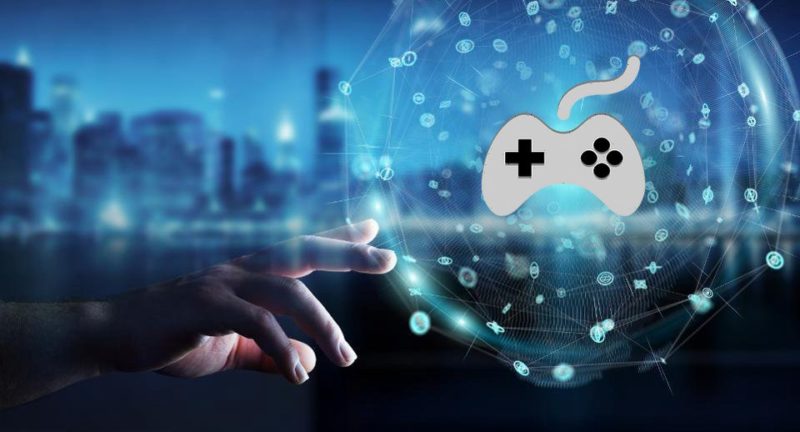Gaming has evolved beyond just entertainment; it has become a source of income for millions worldwide. The Play-to-Earn (P2E) gaming model has taken the industry by storm, allowing players to earn real-world value through their in-game efforts. But what’s fueling this revolution? Blockchain technology. By integrating blockchain, P2E gaming is transforming into a decentralized, transparent, and player-driven economy. In this blog, we will explore how blockchain is revolutionizing P2E gaming, its benefits, challenges, and what the future holds for this dynamic industry.
Understanding P2E Gaming.png)
What is Play-to-Earn Gaming?
Play-to-Earn (P2E) gaming is a model where players can earn real-world rewards, often in the form of cryptocurrency or non-fungible tokens (NFTs), by engaging in gaming activities. Unlike traditional gaming, where players spend money on in-game assets without any financial return, P2E allows players to monetize their skills, time, and in-game achievements.
How P2E Differs from Traditional Gaming
Traditional gaming follows a centralized model where game developers control in-game assets, rules, and economies. In contrast, P2E games leverage blockchain technology to provide players with actual ownership of in-game assets, often tradable on decentralized marketplaces. This shift empowers gamers by giving them financial incentives for their participation.
Benefits of P2E Gaming
- Real-world Earnings – Players can convert their in-game earnings into cryptocurrency and fiat currency.
- Ownership of Assets – Players have full control over their items, characters, and land in the form of NFTs.
- Global Accessibility – Anyone with an internet connection can participate, breaking geographical financial barriers.
- Community-Driven Economy – Blockchain-based games often have decentralized governance, allowing players to vote on game updates and economic changes.
How Blockchain is Revolutionizing P2E Gaming
Decentralization and Ownership
Blockchain ensures that in-game assets are decentralized, meaning players have complete ownership rather than developers. This decentralization removes the risk of losing assets when a game shuts down or bans an account.
Security and Transparency
Since blockchain operates on a public ledger, every transaction and asset transfer is recorded transparently, preventing fraud, duplication, and unfair practices.
Smart Contracts and Automated Transactions
Smart contracts ensure that rewards, trades, and transactions are automated and secure. Players receive their earnings without relying on a centralized authority.
Interoperability Across Games
Blockchain enables cross-game asset usability, meaning players can use NFTs and tokens in multiple games rather than being restricted to a single platform.
If you’re looking to invest in blockchain-driven opportunities, consider investing in SRP Token, a secure and innovative asset in the decentralized gaming ecosystem.
The Role of NFTs in P2E Gaming
NFTs (Non-Fungible Tokens) play a significant role in P2E gaming by representing unique in-game assets that players can own, trade, and sell.
In-Game Items as NFTs
- Characters and Avatars – Players can purchase, customize, and trade their unique avatars.
- Weapons and Skins – Rare items can be bought, sold, or exchanged on NFT marketplaces.
- Virtual Land and Real Estate – Games like The Sandbox and Decentraland allow players to purchase virtual real estate that appreciates in value over time.
NFT Marketplaces and Their Impact
Dedicated NFT marketplaces like OpenSea, Rarible, and game-specific exchanges facilitate buying, selling, and trading in-game NFTs, creating a thriving digital economy.
The Rise of GameFi (Gaming + DeFi)
GameFi combines decentralized finance (DeFi) and gaming, allowing players to earn passive income through DeFi mechanisms.
Yield Farming and Staking in Gaming
Players can stake in-game tokens to earn rewards or participate in yield farming to generate additional earnings.
Governance Tokens in Gaming Economies
Governance tokens allow players to participate in decision-making, giving them control over game development and economic policies.
Popular P2E Games Leading the Blockchain Revolution
Several blockchain-based P2E games have paved the way for the industry’s success.
Axie Infinity
One of the pioneers of P2E gaming, Axie Infinity allows players to breed, trade, and battle Axies (NFT creatures) while earning Smooth Love Potion (SLP) tokens.
The Sandbox
A metaverse-driven game where players can purchase, develop, and monetize virtual land using blockchain technology.
Decentraland
A decentralized virtual world where players can buy, build, and trade digital real estate using MANA tokens.
Challenges in P2E Gaming and Blockchain Integration
Despite the many advantages, blockchain-based P2E gaming faces several challenges.
Scalability Issues
Blockchain networks often experience congestion, leading to slow transactions and high gas fees.
Regulatory Uncertainty
Many countries have unclear or restrictive regulations regarding cryptocurrency and blockchain gaming, creating uncertainty for developers and players.
Sustainability Concerns
P2E games must ensure long-term sustainability to avoid hyperinflation of in-game currencies, which can lead to a decline in player interest.
Security Risks
Blockchain games are vulnerable to hacks and exploits, as seen in incidents like the Axie Infinity Ronin bridge hack.
Future of P2E Gaming with Blockchain
The future of P2E gaming looks promising, with several advancements expected to drive growth.
Metaverse and AI-Driven Economies
The rise of the metaverse and AI-powered game economies will enhance immersive gaming experiences and automate in-game financial systems.
Layer-2 Scaling Solutions
Solutions like Polygon and Immutable X are working on reducing transaction fees and improving scalability, making P2E gaming more accessible.
Mainstream Adoption
With major gaming studios exploring blockchain integration, P2E gaming is likely to become a mainstream industry within the next decade.
Conclusion
P2E gaming, powered by blockchain technology, is reshaping the gaming industry by offering players financial incentives, true ownership, and decentralized control. While challenges remain, the future looks bright as innovations like GameFi, NFTs, and metaverse integration drive further adoption. As blockchain continues to evolve, P2E gaming will likely become the standard, allowing gamers to play, earn, and thrive in a digital economy. Whether you’re a gamer, investor, or developer, now is the perfect time to explore the world of blockchain-powered gaming.

 China
China Russia
Russia India
India










7 Comments
人生多艰,快乐一天是一天!
Hi, how have you been lately?
真免费!价值万元资源,不要一分钱,网址:https://www.53278.xyz/
益群网:终身分红,逆向推荐,不拉下线,也有钱赚!尖端资源,价值百万,一网打尽,瞬间拥有!多重收益,五五倍增,八级提成,后劲无穷!网址:1199.pw
Great post! The nuances you’ve touched on are worth further exploration. I’ve shared related insights on my website—check it out.
How are you?
A really good blog and me back again.